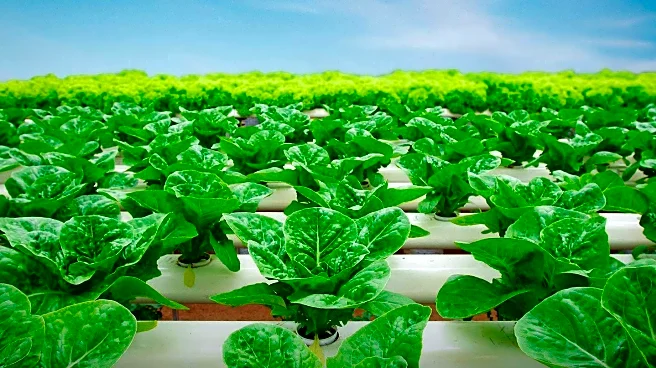What's Happening?
A recent study has uncovered distinct social structures between natural and conventional farming practices in India. Conducted in regions such as Himachal Pradesh, Rajasthan, Andhra Pradesh, West Bengal, and Jharkhand, the study found that natural farming is often practiced by individuals who are more educated, from upper castes, and older compared to conventional farmers. Despite these differences, the study noted that natural farming does not offer substantial monetary or dietary benefits over conventional methods. The findings suggest that traditional practices, often unknowingly aligned with natural farming, are prevalent among certain social groups.
Why It's Important?
The study's findings highlight the socio-economic dimensions of farming practices, which could influence agricultural policy and development programs. Understanding the social structures associated with natural farming can help policymakers tailor interventions that support sustainable agriculture while addressing social inequalities. The lack of significant economic or dietary advantages in natural farming suggests that efforts to promote these practices should focus on environmental benefits and long-term sustainability rather than immediate financial gains. This insight is crucial for developing strategies that encourage sustainable farming while considering the social context of farmers.
What's Next?
Policymakers and agricultural organizations may use the study's findings to design targeted programs that support natural farming practices among diverse social groups. Efforts could include educational initiatives to raise awareness about the environmental benefits of natural farming and financial incentives to make these practices more economically viable. Additionally, further research may be conducted to explore the potential for integrating natural farming techniques with conventional methods to enhance sustainability and productivity. The study may also prompt discussions on how to address social disparities in agriculture, ensuring that all farmers have access to sustainable practices.










